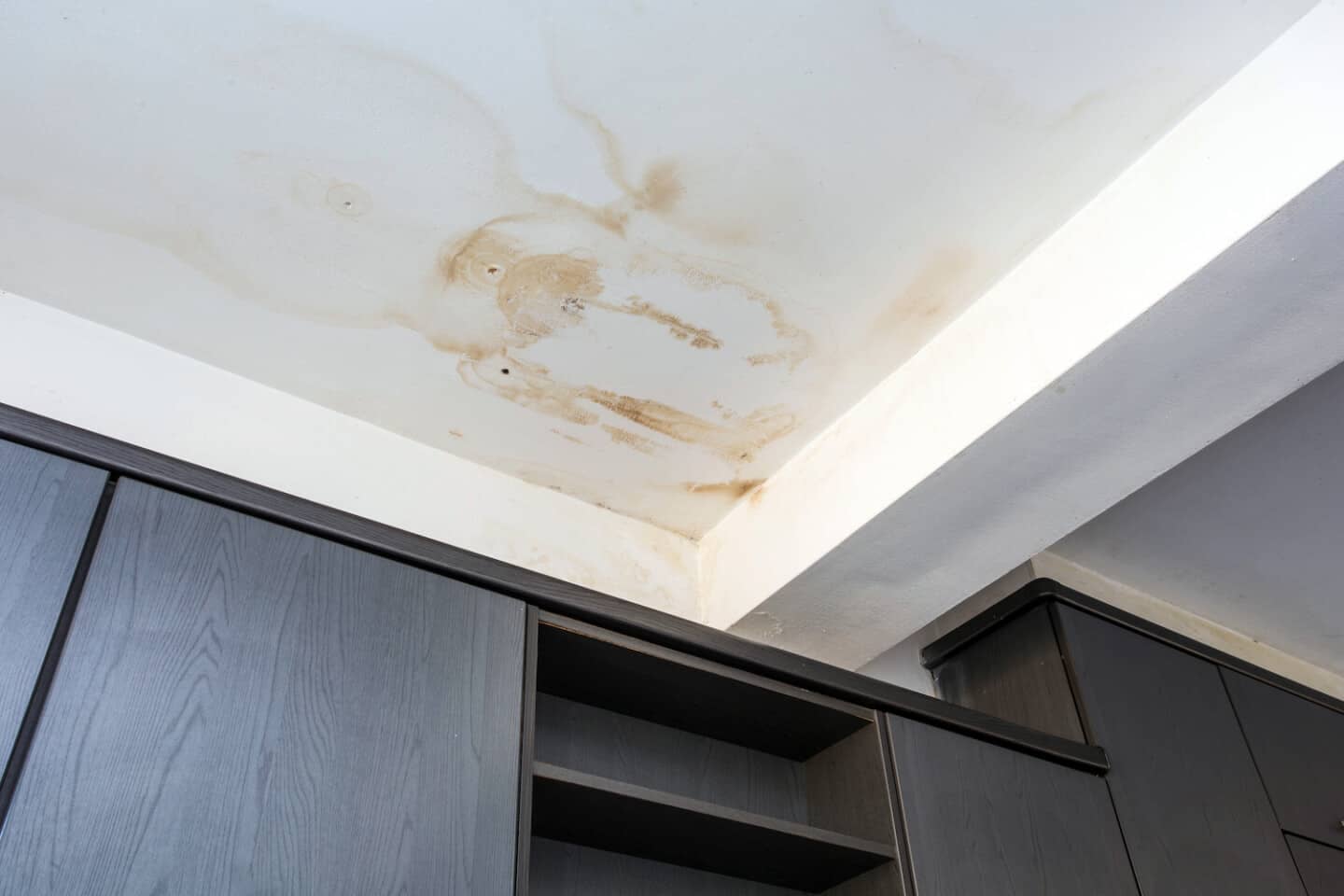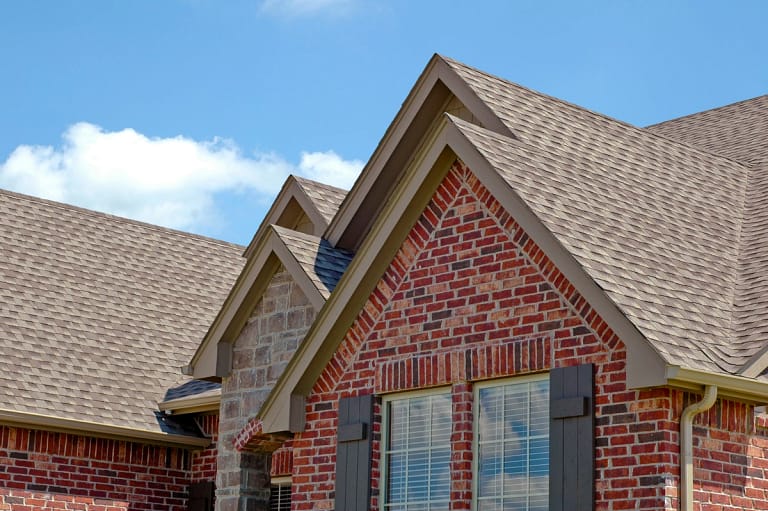When a leak springs in your home, it can bring up all sorts of panicked feelings. It may be hard to get your thoughts straight when your mind is racing with all sorts of questions, including:
- How do I fix this leak? 💧
- Who do I call for help? 📞
- How expensive will this be? 💸
And, of course, there is the question that likely brought you here in the first place. Does insurance cover roof leaks?
The good news is most homeowners insurance policies cover roof leaks. But like all things insurance related, it can get complicated. Luckily, we’ve done the research for you so that when a roof leak appears in your home, you are ready to file a claim and get repairs scheduled quickly. To learn more about what your homeowners insurance policy does and does not cover, read on!
Why You Need Homeowners Insurance

Before we explain how homeowners insurance can help you take care of your leaky roof, we think it is important to stress how vital it is to have homeowners insurance in the first place!
If you are already a homeowner, chances are that you already have some sort of policy. But did you know that it is not actually legally required? While many people in the home-buying process, such as mortgage lenders, require homeowners to purchase insurance, there are still those who choose to opt-out of it.
This is a big “no-no” in our book. Homeowners insurance is a vital step in protecting your home against unseen disasters that could have a devastating financial impact on you.
When you invest in homeowners insurance, you call alleviate a lot of anxiety, knowing that you and your home are safe. It’s particularly important if you live in a climate with lots of weather extremes that can wreak havoc on the exterior of your home and lead to bigger structural issues down the road. When it comes to helping you take care of roof damage, it is essential that you have a solid homeowners insurance policy in place.
Does Insurance Cover Roof Leaks?
And now, for the question of the hour! Will your homeowner’s insurance cover roof leaks?
The answer? It depends.
Most homeowners insurance policies cover the repair of a leak, but only if it was caused by an accidental event. For example, if you have recently had a hailstorm that caused roof damage, or if a tree branch has fallen on your roof and that has caused the leak, that will typically be considered a covered roof leak.
However, if the roof leak with caused by poor maintenance or neglect on your end, insurance will not cover it. In general, most policies are only designed to protect your home against accidental, uncontrollable damage.
What Does Homeowners Insurance NOT Cover?
As we’ve previously stated, homeowners insurance will not cover a roof that has been damaged due to neglect or unforeseen circumstance. If you’re having trouble imagining those sorts of scenarios, here are some examples of what a homeowners insurance policy typically will not cover when it comes to your roof.
- Moss or Fungus Growth 🍄 – If you live in a damp area and have not properly maintained your roof, it is possible that you may deal with moss or fungus growth on your roof. This can damage your shingles and lead to leaks indoors. However, it is not typically covered by insurance.
- Earthquakes 💥 – If you live in an area that is susceptible to earthquakes, it is likely that you will need to purchase a separate earthquake insurance policy in order to cover damages incurred by them.
- Animal Damage 🐿️ – Has your roof been damaged by a critter? Any damage from animals such as squirrels, birds, or even bugs is usually not covered by a standard homeowners insurance policy.
- Neglect 🍂 – Have you been putting off removing debris from your roof or cleaning your gutters? We’ve got some bad news for you. Not only will you likely be facing some water damage, but your insurance company probably isn’t going to help you out.
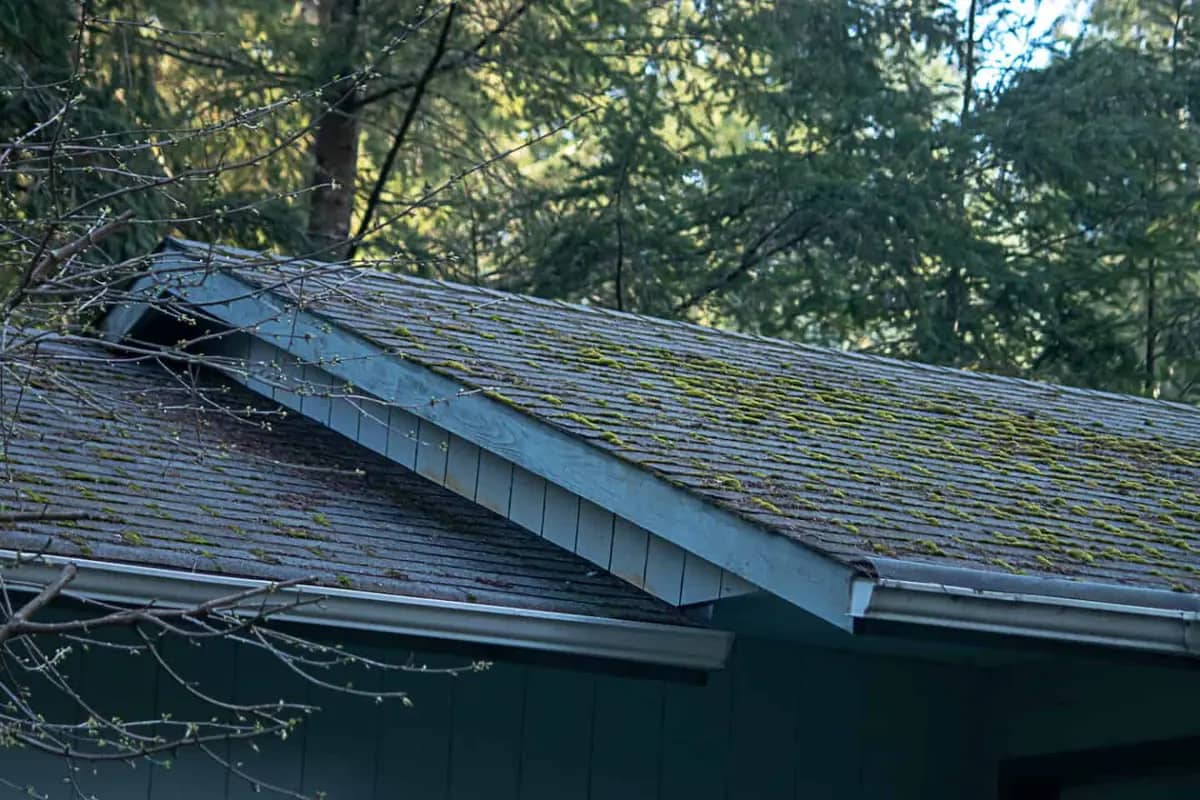
Should You File a Claim with Your Homeowner Insurance?
So, you’ve determined that, yes, your homeowners insurance policy should cover roof leaks in your home. But do you actually want to file a claim?
Before contacting your insurance company, it is important to review your policy to decide if it is the right move for you. For many homeowners, the decision will be greatly impacted by the size of their deductible.
A deductible is a part of your insurance that you are responsible for paying before insurance kicks in. That means if your policy has a deductible of $700 and your repair costs $1000, insurance will cover $300 of the cost.
If the amount that you will receive from your insurance company is low to nothing, it’s possible that the better move is to not file an insurance claim. After all, filing a claim could cause your insurance premiums to go up in the future. Be sure to contact a professional roofing contractor and receive a quote before reaching out to your insurance company. After all, a minor roof repair may be feasible for you to pay on your own, whereas a full roof replacement may need the help of a homeowners insurance claim.
How to File a Claim in 3 Simple Steps
Ready to file a claim? Here are three easy steps to follow.
1) File Promptly
When it comes to insurance claims, time is of the essence. Standard homeowners insurance policies usually require you to inform them of any damage ASAP in order to ensure that you receive coverage.
2) Document Everything
Before you begin any repairs (or even remove debris), it’s important to document all damage to your home in order to ensure that you are fairly compensated when making your roof claim. Take lots of photographs from a variety of angles.
3) Contact a Reputable Contractor
Do some research and ensure that the roofing contractor that you are hiring has good reviews and specializes in the type of repair that you need. Your homeowners insurance company will allow you to make any urgent repairs that you need to, but be sure to save any receipts so that you are properly reimbursed.
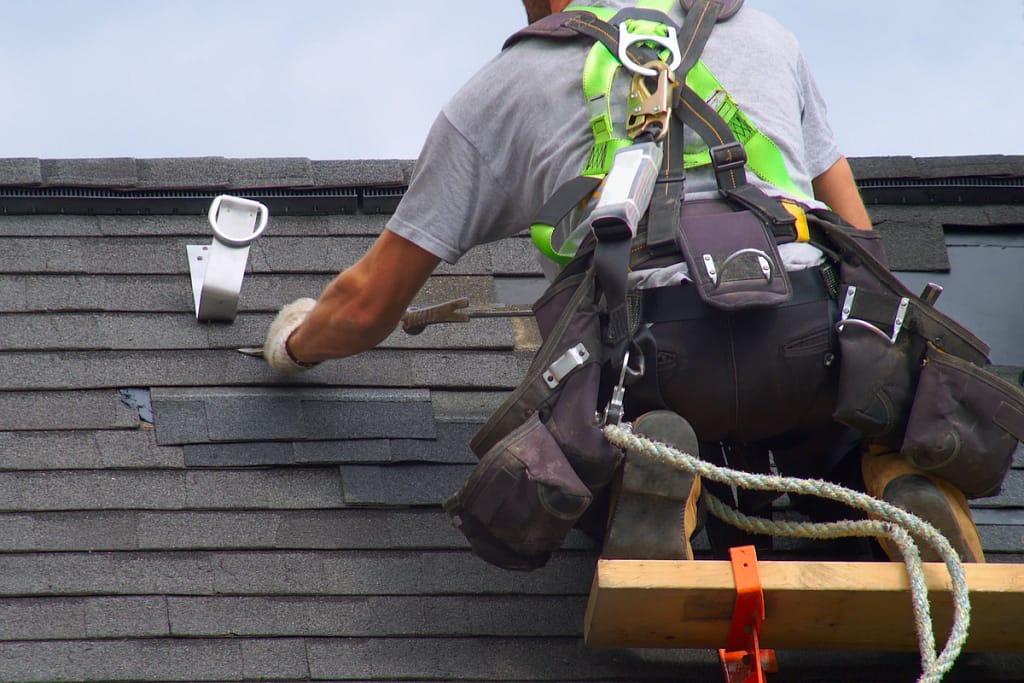
Preventative Action
We can all agree that roof leak coverage can be a lifesaver while also causing a bit of a headache. Want to stop roof leaks before they ever start? Here are some maintenance tips that will help keep your roof safe and functioning.
Clear Debris
Debris buildup is one of the most common ways roof leaks start. However, they are also one of the most overlooked areas of your home when it comes to maintenance. Debris stops your roof system from draining water properly and can lead to roof leaks. For best results, we recommend regularly removing debris from your roof and gutters.
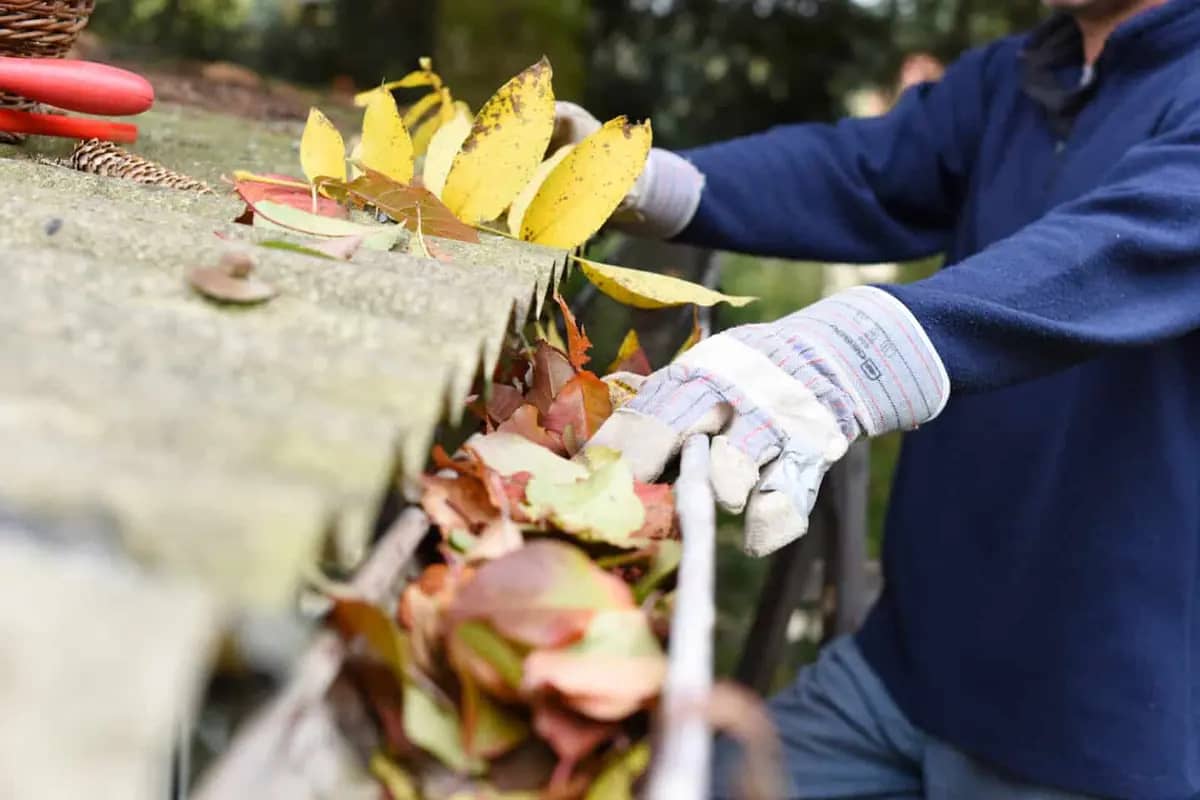
Install Proper Insulation
If your attic roof is not properly insulated, you may find yourself dealing with ice dams that can damage your roof and lead to roof leaks. Installing proper insulation will help protect your roof in the long run, as well as save you money on your energy bills!
Repair Shingles
Having a few missing shingles may not seem like that big of a deal, but it is the easiest way for water to penetrate through the layers of your roof and create a roof leak. In order to avoid a costly roof repair further down the line, we recommend replacing loose shingles as quickly as possible.
Schedule Roof Inspections
Scheduling regular roof inspections is one of the best ways to ensure that your roof continues to perform well in the future. A trained roofing contractor can help spot trouble areas before you develop a roof leak and prevent further roof damage.
In general, if you’re worried your roof has been damaged during a recent storm, it’s best to err on the side of caution and schedule a roof inspection. This way you can ensure there are no slow leaks hiding on your roof.
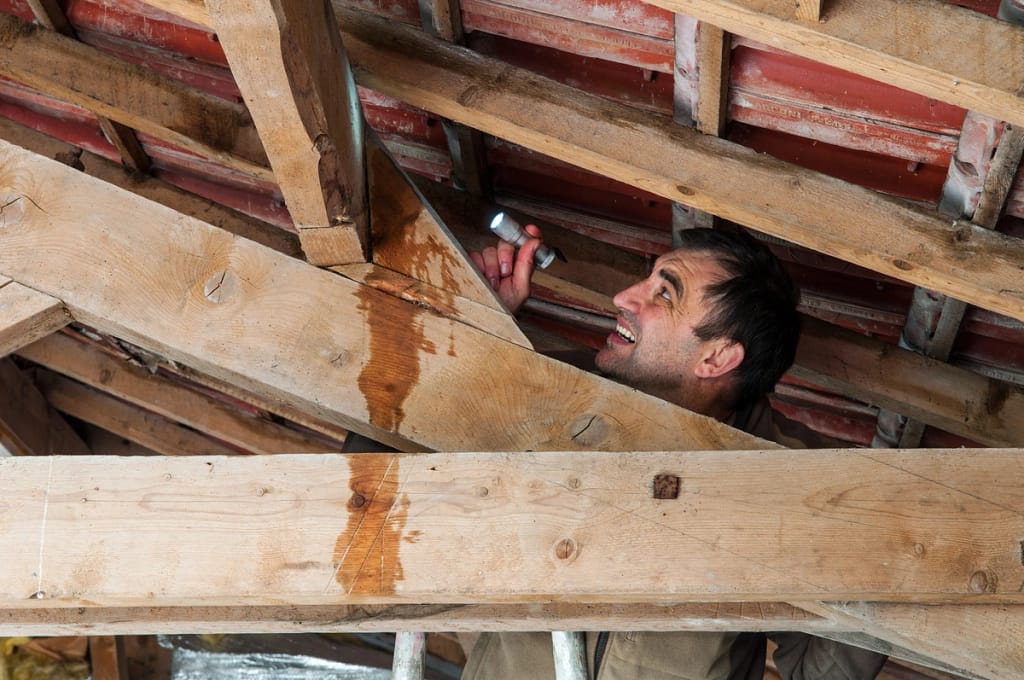
Be Aware of Branches
Do you have a tree with branches that hang above your roof? You may want to schedule a tree trim or risk a fallen tree on your home! Many roof leaks are caused by impact from fallen branches or trees damaging your roof. You can be prepared by cutting down any stray branches before they fall.
Let The Pros Help With Your Leaky Roof!
Need a trusted roofing professional on your side? Our team at Best Exteriors can help! As Ohio’s #1 choice for all exterior services, our team is ready and available to help you take care of your home. Whether you need a roof repair, replacement, or something else, we can help create a home that can stand up to the elements. Contact us today to get a free consultation!
